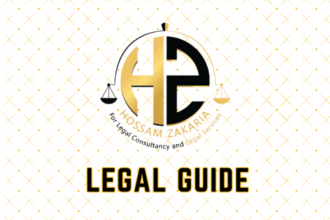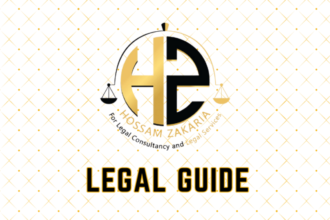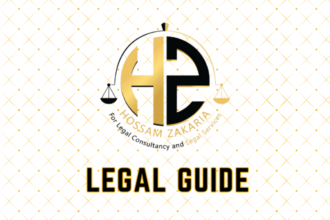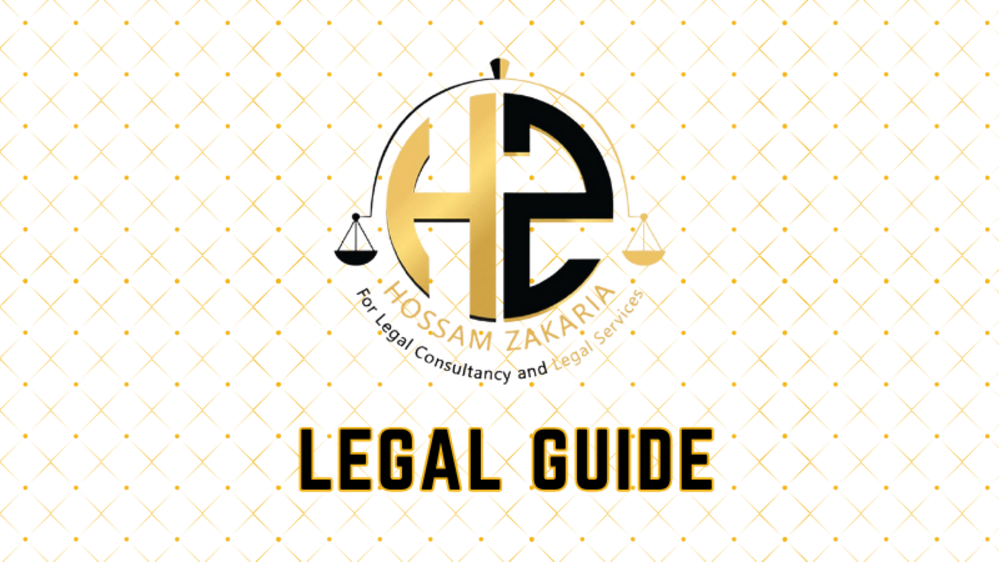Introduction
Cross-border banking disputes and the legal jurisdiction questions they raise are central challenges for UAE businesses with interests in Saudi Arabia. The rapid growth of commercial ties between the UAE and KSA, as reflected by billions in annual trade and mounting foreign direct investments, amplifies both opportunity and risk. With the increased adoption of cross-border financial services and digital banking routes, regulatory complexity has surged. Recent legal updates, including the introduction of new Saudi Arabian Banking Laws (2023), the revised UAE Federal Decree-Law No. (50) of 2022 on Commercial Transactions, and ongoing reforms to both countries’ arbitration landscapes, underscore the urgent need for sophisticated legal strategies to protect UAE business interests. Executives, in-house counsels, and compliance managers must deeply understand the evolving landscape of banking dispute resolution and legal jurisdiction to mitigate risks, secure commercial outcomes, and maintain regulatory compliance on both sides of the border. This analysis offers a detailed, consultancy-level examination tailored specifically for UAE-based enterprises active or planning expansion in Saudi Arabia.
Table of Contents
- Understanding the Legal Framework: Saudi and UAE Banking Regulations
- Legal Jurisdiction in Cross-Border Banking: Core Concepts and Recent Updates
- Dispute Resolution Mechanisms: Courts, Arbitration, and Alternative Routes
- Risks of Non-Compliance and Penalties: A Comparative Table
- Strategic Approaches to Compliance and Risk Mitigation for UAE Businesses
- Case Studies: How UAE Businesses Navigated Cross-Border Disputes
- Key Takeaways and Forward-Looking Guidance
Understanding the Legal Framework: Saudi and UAE Banking Regulations
Saudi Arabia’s Banking Law and Civil Procedures
Saudi Arabia’s financial sector is governed by the Saudi Arabian Monetary Authority (SAMA), with the Banking Control Law (Royal Decree No. M/5 of 1386H [1966]) as the primary statute. SAMA’s recent Circulars (notably the 2023 Guidelines on Cross-Border Transactions) have further clarified due diligence, reporting obligations, and dispute resolution for foreign parties.
- Cross-Border Dispute Recognition: The Saudi Civil Procedures Law (as amended in 2020) recognizes and enforces certain foreign arbitral awards and judgements, subject to public policy and reciprocity.
- Banking Secrecy and Anti-Money Laundering (AML): Compliance with SAMA’s rules and the Anti-Money Laundering Law (2017, as amended in 2022) is mandatory, with high penalties for breaches involving cross-border transactions.
UAE Federal Laws Impacting Cross-Border Banking
The UAE’s Federal Decree-Law No. (50) of 2022 concerning Commercial Transactions and the 2020 Central Bank Law (Federal Decree-Law No. (14) of 2018, as amended) both contain provisions with cross-jurisdiction impact:
- Governing Law Clauses: Parties to cross-border banking deals are allowed, under UAE law, to stipulate the governing law of their contracts. UAE courts generally respect such clauses unless contrary to public order or local regulations.
- Enforcement of Foreign Judgements: The UAE’s ratification of the Riyadh Arab Agreement for Judicial Cooperation (1983) and its mechanisms for reciprocal enforcement remain critical for banks and corporates.
For official legal texts, see the UAE Ministry of Justice and SAMA’s legal resources.
Legal Jurisdiction in Cross-Border Banking: Core Concepts and Recent Updates
Determining Jurisdiction: Criteria and Court Approach
The fundamental legal question in cross-border disputes is which court or tribunal has authority (‘jurisdiction’) to resolve the matter. In banking disputes, this is especially complex due to:
- Multi-jurisdictional agreements
- Cross-border electronic funds transfers
- Parties in more than one country
Key factors considered under UAE and Saudi law include:
- Place of performance (lex loci solutionis)
- Location of parties and assets
- Choice of law and forum clauses
- Public policy and overriding mandatory laws
Recent Updates: How New Laws Affect Jurisdiction
Two important legal developments have shifted the jurisdictional analysis:
- UAE Federal Decree-Law No. (42) of 2022 on Civil Procedure: This law clarifies the competence of UAE courts regarding foreign elements, reinforcing respect for mutually agreed foreign jurisdiction clauses in contracts, unless such choice undermines UAE public policy or the rights of weaker parties.
- Saudi Judicial Reforms (Royal Decree No. M/6 of 2023): These endorse the enforceability of foreign court and arbitral decisions, provided reciprocity and proper notification are observed.
| Feature | Pre-2022 | Post-2022 Updates |
|---|---|---|
| Respect for Contractual Forum Clauses | Varied, often limited | Broadly recognized unless contrary to public policy |
| Enforcement of Foreign Judgments | More limited, protracted enforcement | Expedited under Riyadh Agreement and new decrees |
| Digital Dispute Mechanisms | Rare | Permitted, some virtual hearings |
Dispute Resolution Mechanisms: Courts, Arbitration, and Alternative Routes
Litigation in Saudi Courts
Saudi Arabian courts retain exclusive jurisdiction in matters involving real property, public order, or registration with Saudi authorities. However, in purely commercial disputes:
- If jurisdiction is not reserved by Saudi law, parties may contract for arbitration or foreign courts.
- Litigation proceedings in Saudi Arabia are governed by the Civil Procedures Law (as amended in 2020).
- Foreign language documents must be officially translated.
Arbitration: Growing Preference for Cross-Border Banking Disputes
Both the UAE and Saudi Arabia are parties to the New York Convention on the Recognition and Enforcement of Foreign Arbitral Awards (1958). Arbitration is increasingly deployed as a preferred mechanism:
- UAE: Federal Law No. (6) of 2018 on Arbitration (as amended), and enforcement via UAE Court of First Instance.
- Saudi Arabia: Saudi Arbitration Law (Royal Decree No. M/34 of 1433H [2012]).
- Major arbitral venues: Dubai International Arbitration Centre (DIAC), Saudi Center for Commercial Arbitration (SCCA).
Practical Insight: The choice of arbitration is especially effective where parties are concerned about unpredictable local court outcomes, language barriers, or the need for neutrality.
Alternative Dispute Resolution (ADR) Channels
Mediation, conciliation, and bank ombudsman services are fast-growing in use—especially for lower-value disputes and as a precondition before litigation or arbitration. Both the UAE and Saudi regulatory authorities encourage ADR through official guidelines and sector-specific protocols.
Risks of Non-Compliance and Penalties: A Comparative Table
Non-compliance with banking dispute protocols, reporting, or jurisdiction rules exposes UAE enterprises to stiff penalties—often across both Saudi and UAE regulatory regimes. Below is a comparative summary:
| Regulation | UAE Sanctions | Saudi Arabia Sanctions |
|---|---|---|
| Violation of AML obligations | Fines up to AED 5 million; license revocation | Fines up to SAR 5 million; possible imprisonment; public blacklisting |
| Failure to report cross-border transactions | Rigorous administrative penalties and reporting to Central Bank | Regulatory suspension by SAMA; risk of criminal prosecution |
| Non-recognition of agreed dispute venue | Civil liability; potential unenforceability | Dismissal of claim or enforcement refusal |
Suggestion: Place a compliance checklist visual here featuring key regulatory obligations, deadlines, and recommended documentation for cross-border cases.
Strategic Approaches to Compliance and Risk Mitigation for UAE Businesses
Contract Drafting and Dispute Planning
- Careful Selection of Governing Law and Jurisdiction: Include robust clauses in all cross-border banking and finance contracts. Reference both UAE and Saudi requirements, ensuring compatibility with SAMA and UAE Central Bank guidelines.
- Dual Legal Review: Always secure parallel vetting from UAE and KSA counsel to pre-empt enforceability risks.
- Language & Translation Best Practices: Maintain official Arabic translations for Saudi transactions, even if contracts are drafted in English under UAE law.
- Evidence Preparation: Compile consistent and secure documentation with chain of custody records suitable for both jurisdictions.
Internal Controls and Training
| Control Measure | UAE Requirement | Saudi Requirement |
|---|---|---|
| Periodic AML Audit | Annual (per UAE Central Bank guidance) | Quarterly (per SAMA Circulars) |
| Bilingual Documentation | Mandatory for court proceedings | Mandatory for SAMA |
| Dispute Notification Protocol | Within 15 days of incident | Immediate, per SAMA rules |
Proactive Relationship Management
- Regular engagement with both UAE and Saudi banking regulators; subscribe to legal updates from UAE Ministry of Justice and SAMA.
- Designate cross-border dispute resolution officers or compliance teams specialized in KSA matters.
Case Studies: How UAE Businesses Navigated Cross-Border Disputes
Case Study 1: Forex Banking Dispute Resolved via Arbitration
Scenario: A UAE-based trading company experienced a blocked outbound payment from its Saudi correspondent bank. The contractual jurisdiction was stated as DIAC (Dubai), with documentation in English. The Saudi counterparty challenged the venue based on Saudi public policy.
Resolution: The parties agreed to expedite proceedings under DIAC rules, provided that the final award would be submitted through SCCA channels for reciprocity in enforcement. Both Saudi and UAE counsel coordinated translation and formal notification requirements. The arbitral decision was recognized in Saudi courts due to proper adherence to form and notification under the New York Convention.
Case Study 2: Retail Banking Fraud—Jurisdiction Deadlock
Scenario: An Emirati fintech SME alleged unauthorized withdrawals via a Saudi Bank affiliate. The Saudi bank refused UAE court jurisdiction, asserting Saudi law applied to consumer banking disputes.
Resolution: Emirati legal teams initiated proceedings in UAE courts, but final recovery required parallel negotiation with SAMA-appointed mediators and submission to Saudi civil courts for final enforcement—demonstrating the need for earlier forum planning.
Key Takeaways and Forward-Looking Guidance
UAE businesses engaged with Saudi counterparties must anticipate that cross-border disputes will increasingly hinge on careful contract drafting, meticulous compliance protocols, and proactive selection of dispute resolution mechanisms. Recent legal reforms in both countries have streamlined, but not eliminated, jurisdiction and enforcement challenges. A strategic cross-jurisdictional legal advisory partnership is now indispensable to minimize risk, maximize enforceability, and sustain commercial success.
- Key future trends: Enhanced adoption of digital arbitration, sector-specific banking dispute panels, and mandatory bilingual legal documentation are imminent.
- Best practice recommendation: UAE businesses should maintain updated compliance checklists, secure ongoing dual-jurisdiction legal review, and invest in regular staff training on both UAE and Saudi regulatory environments.
- Stay alert to updates via the UAE Ministry of Justice, UAE Central Bank, SAMA, and the Saudi Center for Commercial Arbitration.
Conclusion
The dynamic legal landscape of cross-border banking between the UAE and Saudi Arabia demands more than generic contract templates and reactive dispute management. Businesses that commit to high-quality legal foresight, develop robust cross-jurisdictional protocols, and foster strong regulator relationships will secure not just legal compliance but also market confidence and commercial resilience. As both jurisdictions continue to refine their commercial and dispute resolution laws, 2025 and the coming years will witness increased harmonization but also new, complex regulatory expectations. UAE businesses are urged to remain proactive, agile, and ever-informed to lead in an era of cross-border opportunity and scrutiny.
For bespoke legal advisory services on cross-border banking disputes, compliance, and dispute resolution in Saudi Arabia, UAE businesses are encouraged to consult with specialist legal appointed advisors.



